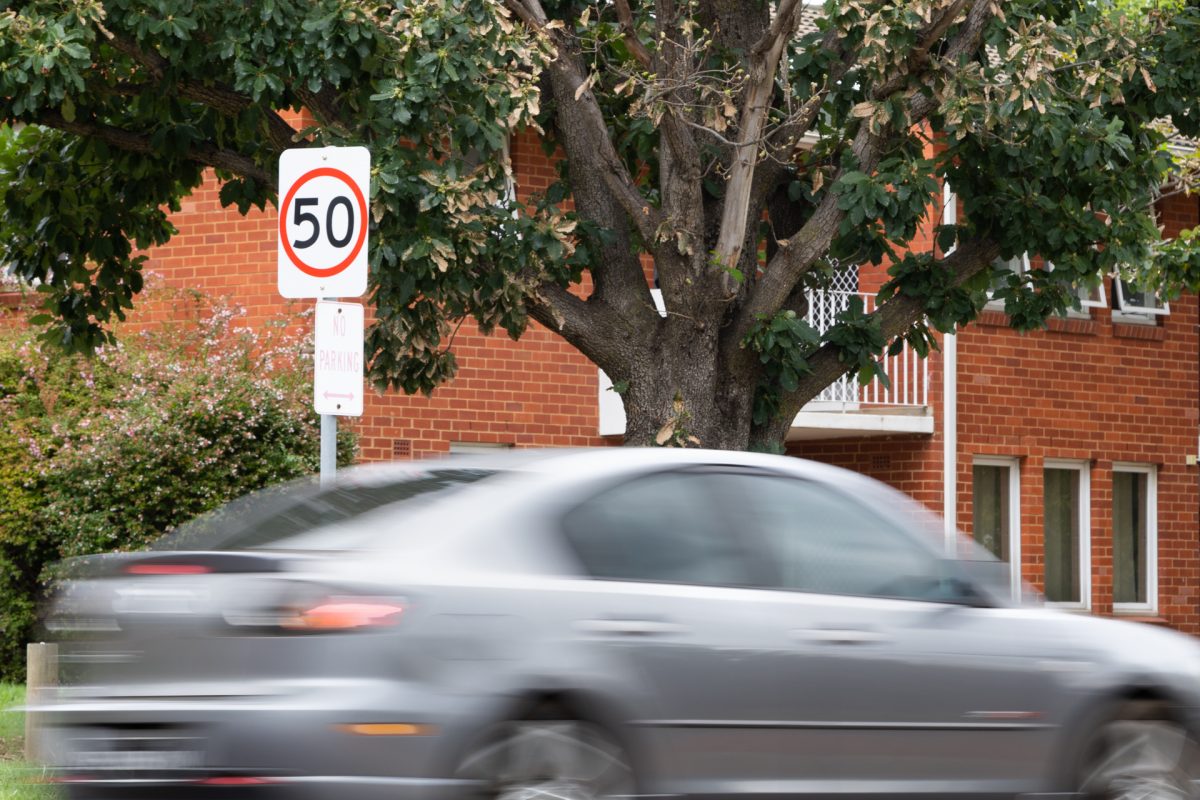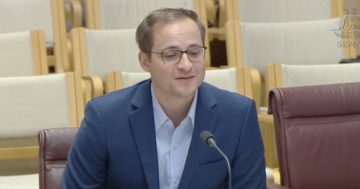
The inquiry recommended an income-based approach to penalties such as speeding fines and parking infringements. Photo: Michelle Kroll.
A Legislative Assembly inquiry has recommended the ACT should consider scrapping the current system of flat penalties and instead introduce income-based fines for minor offences such as speeding and parking violations.
The Standing Committee on Justice and Community Safety handed down its report into penalties for minor offences and vulnerable people this week, offering 13 recommendations.
The committee concluded that the current system of flat penalties for minor offences has a “disproportionate impact on vulnerable people”, particularly Aboriginal and Torres Strait Islanders, young people, detainees, welfare recipients, the homeless and people with disabilities and/or mental health issues.
“To the wealthiest people, fines are generally seen at best an inconvenience and at worst a part of the cost of doing business,” the committee’s deputy chair, Andrew Braddock, said.
“To the least fortunate and at-risk person, a fine can prevent them from putting food on the table, if they even have a table to begin with.
“Where an at-risk person fails to pay a fine, for whatever reason, they can potentially be dragged through the courts, causing greater stress and financial hardship,” he added.
“Despite its familiarity and apparent simplicity and transparency, the fine is a mode of punishment that hides complex penal and social realities and effects.
“Fines can perversely incentivise committing other crimes for the simple purpose of survival.
“Also shown by Robodebt, the threat of prosecution can drive people to pay fines even when legally and morally they are not required to do so.”
As well as introducing an income-based approach to penalties, the committee recommended the ACT Government explore a system of warning notices for a first offence instead of a fine or penalty and investigate introducing a cap on the total number of infringement notices or financial penalties from a single interaction with police to reduce financial impacts on vulnerable people.
The inquiry received 13 submissions, including from the ACT Council of Social Service (ACTCOSS), which has long advocated for an income-based approach for ACT Government fines, fees and other charges.
“The ACT Council for Social Service told the committee that there are an estimated 38,300 Canberrans living in poverty, including approximately 9000 children,” the report said.
“[ACTCOSS] said it is important to prevent a situation where an unaffordable penalty can end up resulting in lifelong harms as a result of that person falling into the criminal justice system rather than dealing with the underlying issues causing the behaviours.”
The ACT Human Rights Council also told the inquiry that, under the current system of infringement notices, authorised officers imposing a penalty do not have any discretion to take into account factors such as the seriousness of the offence or any mitigating circumstances.
It said it was a “flawed assumption” that every recipient of a criminal infringement notice would be capable of paying a fine.
“For some, the imposition of such fines will instead compound significant hardship and lead to flow-on consequences.”
The Justice Reform Initiative recommended introducing a “sliding scale” for infringement notice fines based on an individual’s ability to pay, which could be based on the ‘day fine’ structure used in a number of European countries. Under this model, fines are determined based on a formula where the seriousness of the offence is indexed to the offender’s average daily income or the surplus remaining after daily expenses and expressed according to the number of days it would take the offender to pay off the fine.
Attorney-General Shane Rattenbury told the inquiry that while he was interested in income-based penalties, access to reliable income data was the main barrier due to privacy issues and because the ACT Government does not have the legislative power to access taxation data held by the Commonwealth Government.


















